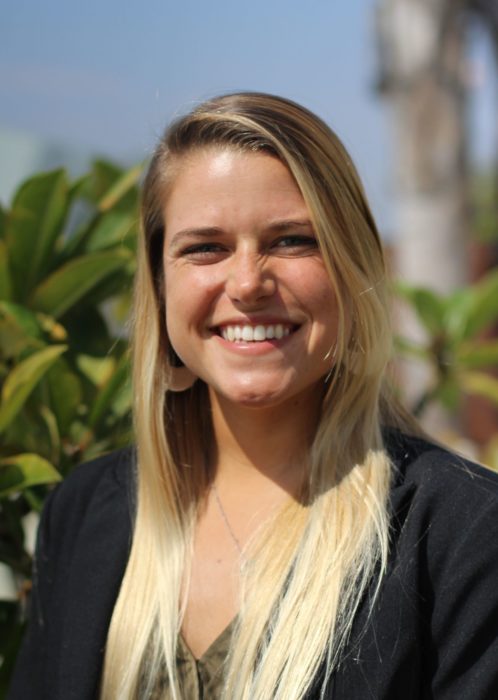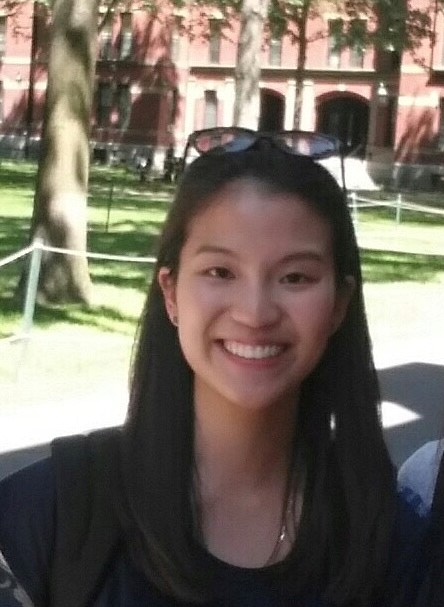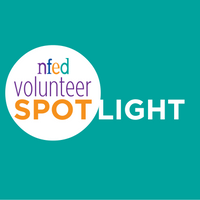We love when new volunteers step up to help the National Foundation for Ectodermal Dysplasias (NFED)! This month, we shine the spotlight on two genetic counseling students who are helping us with the Unknown Project. Pei-Chen Hsieh and Samantha Apodaca are calling NFED families to discuss how ectodermal dysplasia affects them.
The students provide support and offer information to help the families better understand their condition. Our goal is to gather information that may point that family towards a diagnosis.
Let’s learn about these young professionals who are helping us!
Samantha Apodaca

I just finished my first year in my master’s program for genetic counseling at Keck Graduate Institute. Although I was born and raised in southern California, I previously lived in central California where I received my bachelor’s in biological sciences at Cal Poly San Luis Obispo.
As an NFED volunteer, I speak with families who have or had unknown diagnoses of ectodermal dysplasia to gather updated family information on their diagnosis odyssey. I hope to connect with families to better understand their needs in receiving a diagnosis from both a medical and a social support framework.
What I Have Learned
While gathering information from families, I have learned about different impacts that receiving or not receiving a diagnosis can have on families. I have also gained insight on different reasons as to why families may or may not choose to pursue genetic testing.
Throughout this process of gathering information, I found that families are very willing to share their experiences and share information in hopes of helping others experiencing the same journey of an unknown diagnosis. I look forward to continue dedicating time to learn from and connect with families with unknown diagnoses of ectodermal dysplasia.
One of my favorite quotes is from Michelle Obama:
“You may not always have a comfortable life and you will not always be able to solve all of the world’s problems at once but don’t ever underestimate the importance you can have because history has shown us that courage can be contagious and hope can take on a life of its own.”
– Michele Obama
I really like this quote because it reminds me how important community is and that support is needed from multiple facets of life to increase both individual and community success. To me, it shows that the determination and courage of one person can have a domino effect that helps uplift others.
Pei-Chen “Emily” Hsieh

My name is Pei-Chen Hsieh. So that it’s easier for others to say my name, I go by Emily. I’m the youngest member in a family of five. I have two older brothers and have a bunch of nieces and nephews. I grew up in a three-generations household back in Taiwan and I’m an international student studying genetic counseling at MGH Institute of Health Professions.
I started volunteering with the NFED over a month ago. I love to help people and work with people. I personally have atopic dermatitis and worked at a dermatology lab focused on skin disorders. Both passions triggered me to want to volunteer with NFED.
There’re so many people that need us to reach out to give them resources and attention. I am one of the volunteers who is utilizing my abilities to expand the Foundation to different parts of the states to deliver crucial information to those who’re in need.
People who’re on the NFED list that we call are riding in a boat of diagnostic odyssey. We are gathering information from them to find any nuance differences that might be useful for the research and share most updated information for them. Using the skill of counseling patients, I try to show them that we understand their struggles and we’re here to help.
Honing My Skills
The most challenging part is when I start the conversation after they pick up the phone. I’m not sure whether this is a good time to talk or not! The most powerful moment is when families thank us for reaching out to them.
This role has affected the way I ask questions and my word choice when I talk to other people. I have learned how to interact with people through the telephone, picking up non-verbal cues and share information that they needed the most.
I’d like to continue volunteering and add on skills I learn from my genetic counseling school. Also, I’d recommend others to volunteer with the NFED. Everyone in the NFED that I met is so welcoming and passionate about what they’re doing.
If you would like to volunteer for the NFED, check out the various ways you can help.
Volunteer
How wonderful to have these volunteers to work on such an important effort. Bravo and best wishes on their efforts. I’m so very proud of them and their work.
What these young ladies are doing, is Amazing. How can we get in contact with either one? And can they help our family.
Thank you
Monica Ford
Hello, Monica. Please contact Becky at Becky@nfed.org to request if you would be able to connect with them.
Thank you,